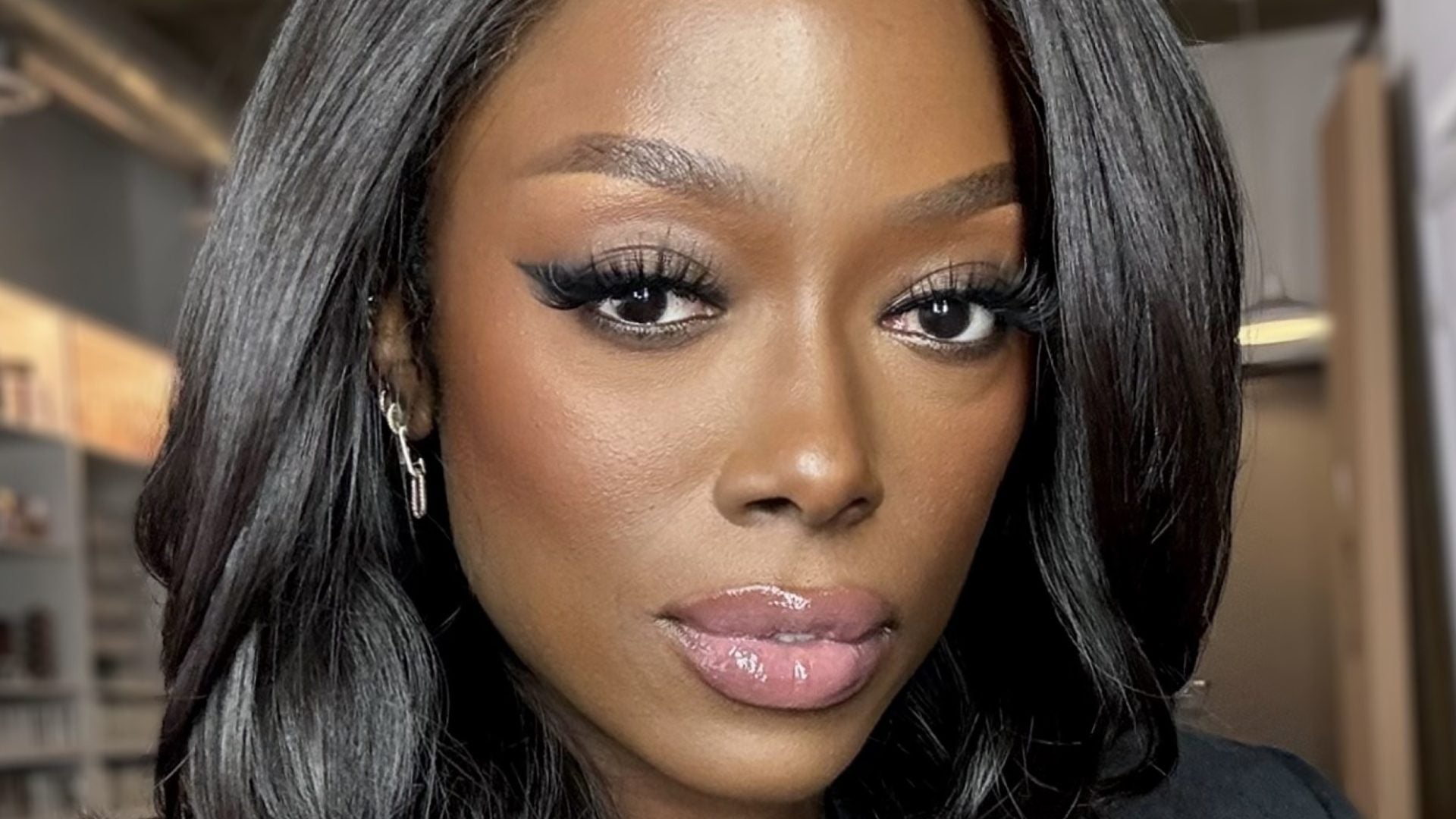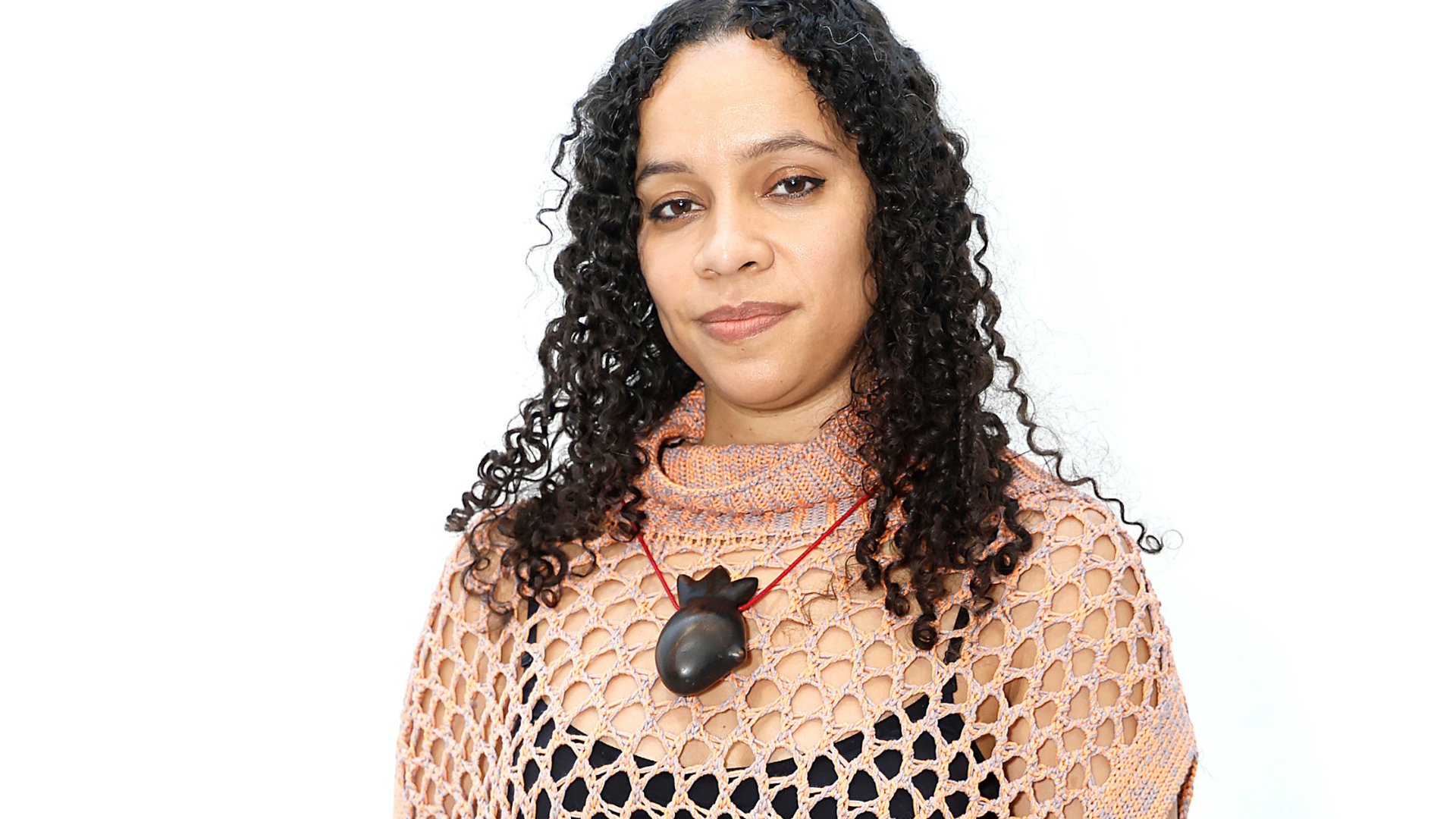The Comparison Trap: Why Watching Other Black Women Win Is Actually Holding You Back
I’ll never forget scrolling through Instagram at 2 a.m., watching another Black woman entrepreneur announce her seven-figure launch. My thumb hovered over the “like” button, but my chest felt tight. […] The post The Comparison Trap: Why Watching Other Black Women Win Is Actually Holding You Back appeared first on Essence.

 Young African woman examining her complexion in a mirror while standing in a bathroom at home in the morning
Young African woman examining her complexion in a mirror while standing in a bathroom at home in the morning I’ll never forget scrolling through Instagram at 2 a.m., watching another Black woman entrepreneur announce her seven-figure launch. My thumb hovered over the “like” button, but my chest felt tight. Here I was, four months into leaving my corporate job with no savings, trying to figure out how to make Boss Women Media work, and she was out here winning visibly, loudly, perfectly.
I closed the app. But the feeling didn’t close with it.
That feeling—part admiration, part inadequacy, part “why not me?”—is what I call the comparison trap. And sis, if we’re being honest, it’s quietly killing our businesses and our joy.
The numbers behind the pressure.
Here’s what makes the comparison trap particularly brutal for Black women entrepreneurs: We’re already building from a deficit. We earn 63 cents for every dollar white men earn. We receive only 0.34% of venture capital funding. Our businesses generate over $211 billion annually, but if we reached revenue parity with Black men-owned businesses, it would take 40 years at current growth rates.
We’re not imagining the uphill battle. The data confirms it.
So when we see another Black woman winning, two things happen simultaneously: We’re genuinely happy because representation matters and her success proves it’s possible. And we’re terrified because if she can do it and we haven’t yet, maybe the problem is us. That’s the trap. Success becomes a zero-sum game. Her win feels like evidence of our inadequacy rather than inspiration for our possibility.
How comparison shows up in our businesses.
Through Boss Women Media, I’ve seen how easily comparison creeps in and quietly redirects our focus. It shows up as the endless pivot—chasing what’s working for someone else instead of building what’s meant for you. It’s the silence that keeps you from sharing your wins because they don’t look as shiny as hers, and the exhaustion that comes from competing in hustle Olympics you never signed up for. It’s underpricing your worth because you assume clients won’t pay more, and skipping opportunities because you’ve convinced yourself everyone else is further ahead. I’ve fallen into each of these traps myself, and every single time, it’s cost me time, money, and peace.
How to break free from the comparison trap.
Unfollow strategically, not spitefully: If her content drains your energy, unfollow to protect your peace while still rooting for her from afar.
Define success for yourself: Her seven-figure launch is hers; your freedom and sustainability are yours—stop comparing your chapter three to her chapter thirty.
Audit your consumption: If you spend more time watching others build than building yourself, it’s time to rebalance the math.
Find your comparison trigger: Notice what sparks your self-doubt and mute those inputs when you need to stay focused on your own growth.
Build real relationships, not parasocial ones: Connection—not silent scrolling—creates community and silences comparison.
Celebrate specifically: Offer detailed praise so you learn from what inspires you instead of feeling inadequate by it.
Track your own progress: Keep a wins folder to remind yourself how far you’ve come whenever comparison creeps in.
The truth about the women you’re comparing yourself to: Even she’s comparing herself to someone else. Comparison is a cycle you can choose to break.
We’re all in our own comparison traps, measuring ourselves against someone else’s external wins while discounting our own internal growth.
And here’s the part nobody posts about: Most of the women you’re comparing yourself to are struggling with something you’ve already mastered. Maybe it’s work-life balance, or team retention, or mental health, or relationships. Success is never as clean as it looks on LinkedIn.
Why Black women need to break this pattern.
The comparison trap doesn’t just hurt us individually—it fractures our collective power. Every hour we spend feeling inadequate is an hour we’re not building. Every opportunity we don’t pursue because “someone’s already doing it” is an opportunity that stays with someone outside our community. Every time we compete instead of collaborate, we weaken the ecosystem that could lift us all.
Boss Women Media exists because I believe in community over competition. The $1 million I’ve distributed to women entrepreneurs isn’t charity—it’s investment in a future where Black women aren’t fighting over crumbs from a table we should own.
But that future requires each of us to break free from the comparison trap and build from our own vision, not someone else’s blueprint. The women and the empires you’re comparing yourself to aren’t your enemies. And their empires don’t limit your empires. There’s enough success, enough opportunity, enough room for all of us. The comparison trap makes us forget that.
So let’s remember it together. Let’s cheer for each other’s wins while building our own. Let’s study each other’s strategies without copying each other’s dreams. Let’s create a world where Black women entrepreneurs aren’t threatened by each other’s success—we’re inspired by it.
Because that’s when the real magic happens. Not Black Girl Magic as a gummy bear flavor (though I’m still proud of that).
Black Girl Magic has an entire economy of women who refuse to play small, refuse to compete for scraps, and refuse to let comparison steal their audacity.
The post The Comparison Trap: Why Watching Other Black Women Win Is Actually Holding You Back appeared first on Essence.
























